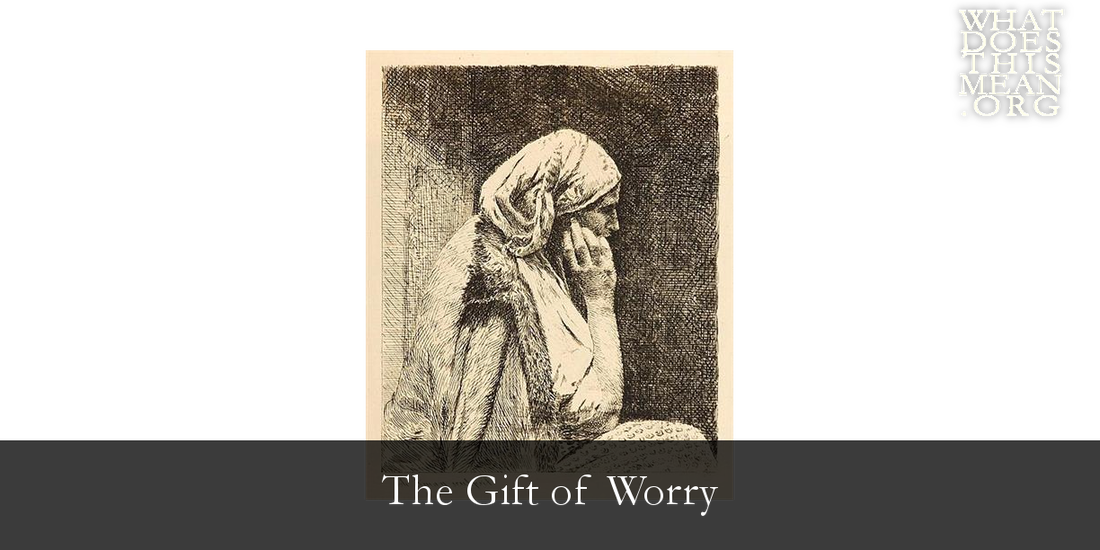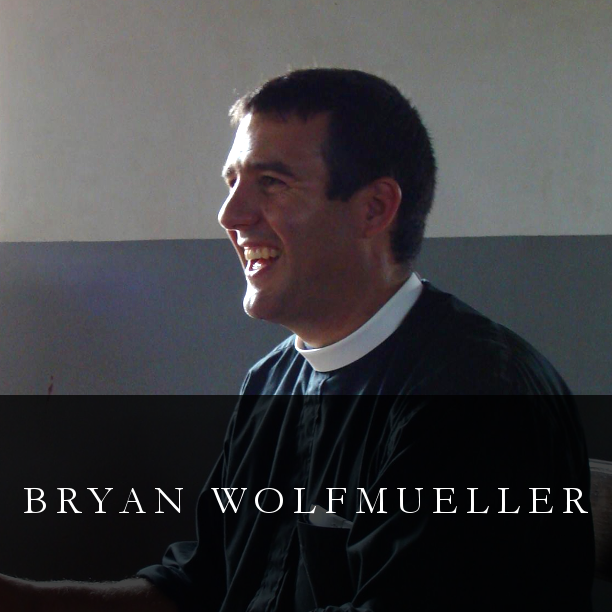(A Sermon with subtitles so it looks like an article!)
This is really the definition of what it means to have a god, to have a master, to worship something. Where is your confidence? What do you trust? Where do you look for all good? This is the first commandment, “You shall have no other gods.” What does this mean? We should fear, love, and trust in God above all things.
God the Father, Son, and Holy Spirit, should be who we trust, but Jesus warns us that other things are pushing in trying to take the place of the true God. This, by the, is idolatry, to fear or love or trust anything above God. And Jesus warns us about the number one contender for our trust: money.
Money Contending for Your Heart
“No one can serve two masters, for either he will hate the one and love the other, or he will be devoted to the one and despise the other. You cannot serve God and money.” (Matthew 6:24)
This false god of money Jesus gives the name Mammon. Luther, in the Large Catechism, says that this is the most common of idols.
"Many a one thinks that he has God and everything in abundance when he has money and, possessions; he trusts in them and boasts of them with such firmness and assurance as to care for no one. Lo, such a man also has a god, Mammon by name, i.e., money and possessions, on which he sets all his heart, and which is also the most common idol on earth. He who has money and possessions feels secure, and is joyful and undismayed as though he were sitting in the midst of Paradise. On the other hand, he who has none doubts and is despondent, as though he knew of no God. For very few are to be found who are of good cheer, and who neither mourn nor complain if they have not Mammon. This [care and desire for money] sticks and clings to our nature, even to the grave." (Luther, Large Catechism, First Commandment, 5-9)
We cling to the illusion that our safety and security, that our life itself and all our happiness depends on having money.
I heard a song the other day that was working this theology out. “I know everyone says ‘Money can’t buy happiness,’” the fellow was singing, “But it can buy me a boat.”
And this is true both for the rich and the poor. The poor are thinking about the money they don’t have, wishing they had more, and the rich are thinking about the money they do have, hoping it will stick around. The rich have watch the stock market like you watch a guy who you think is trying to pick your pocket.
The Liturgy of Money Worship: Worry
Now, Jesus tells us what the worship of money looks like: worry.
“Therefore I tell you, do not be anxious about your life, what you will eat or what you will drink, nor about your body, what you will put on. Is not life more than food, and the body more than clothing?”
The worship of money results in worry. Worry, then, is a sin, and Jesus tells us, very specifically, not to do it. “Do not be anxious about your life.” And He is going to attack our worry in three waves, with three pictures: the birds, the lilies, and the kingdom.
Jesus' Three-Fold Attack on Our Worry
Part 1: The Birds and the Futility of Worship
First, the birds, and futility of worry.
“Look at the birds of the air: they neither sow nor reap nor gather into barns, and yet your heavenly Father feeds them. Are you not of more value than they? And which of you by being anxious can add a single hour to his span of life?”
How much do you have to worry to extend your life another hour? Which of you, by worry, has put a meal on the table? If you worry enough will you grow a foot taller? When has worry actually helped anything? These are the questions Jesus is asking. As much as we want to find security in the things of this world, whoever had enough money to avoid death? Worry, says Jesus, is useless. This is the first point.
Part 2: The Lilies and Prayer
Jesus second attack on our worry: the picture of the lilies, and our recourse to prayer.
"And why are you anxious about clothing? Consider the lilies of the field, how they grow: they neither toil nor spin, yet I tell you, even Solomon in all his glory was not arrayed like one of these. But if God so clothes the grass of the field, which today is alive and tomorrow is thrown into the oven, will he not much more clothe you, O you of little faith? Therefore do not be anxious, saying, ‘What shall we eat?’ or ‘What shall we drink?’ or ‘What shall we wear?’ For the Gentiles seek after all these things, and your heavenly Father knows that you need them all. "
Jesus is mocking the people who worry, saying, “That is how the Gentiles live, but you are different.” The Christian does not say, “What shall we eat?” or “What shall we drink?” but rather, we pray, give us this day our daily bread. In other words, the Christ alternative to worry is prayer.
This is a particularly important and practical point. These words of Jesus, “Your heavenly Father knows that you need them all” are the same words that Jesus used to introduce the Lord’s Prayer only a few paragraphs before our Gospel reading. This is the basis of Christian prayer, that our Father in heaven knows what we need.
So we use our worry as a gauge for the things we need to pray for. In fact, in this way we can understand our worry as a gift from God to teach us to pray. When worry hits us, and we think of something that troubles us, we take this as a reminder from the Holy Spirit to pray.
Paul teaches it this way, “Do not be anxious about anything, but in everything by prayer and supplication with thanksgiving let your requests be made known to God” (Philippians 4:6). And Peter says, “Humble yourselves, therefore, under the mighty hand of God so that at the proper time he may exalt you, casting all your anxieties on him, because he cares for you” (1 Peter 5:6-7). When we are saying our prayers in the morning and at night, we ask ourselves this question, “What am I worried about?” And we pray for those things.
I heard a story about two people, and one of them was particularly worried about the next day, so their friend listened to them, and heard all their worries, and then said, “Let’s pray.” So they said a prayer about all the things that this person was worried about, and asked the Lord for His help, that He would take care of them, and such. Something really interesting happened after that prayer. The person who had been worried still had all the difficult things to face tomorrow, but when they came back to their mind, they knew that these things were in God’s hands, and that worry was inappropriate. “If I worry about this,” they were thinking, “then it means that I don’t trust God to take care of it.”
Now, as it turned out, this person got frustrated because they wanted to worry about these things, and not that they prayed, they couldn’t. But this gets to the point that Jesus has made here, that worry is the opposite of faith. “But if God so clothes the grass of the field, which today is alive and tomorrow is thrown into the oven, will he not much more clothe you, O you of little faith?”
Faith, and the voice of faith, prayer, are the anti-worry, and this gets to the third and final attack of Jesus on our worry, the picture of the kingdom, and the forgiveness of our sins.
Part 3: The Righteousness of God as Pure Gift
"But seek first the kingdom of God and his righteousness, and all these things will be added to you."
All through His sermon Jesus has spoken about your Father in heaven, and this is more than a description, it is a promise. Because of the death of Jesus God our Father is not mad or angry or full of wrath, that is spent on Jesus.
If we want something to really worry about, we should worry about what to eat or drink or wear. We shouldn’t worry about living or dying. We should worry about God, His anger over our sin, His condemning us to hell. This, really, is the only thing worthy of our fear. But Jesus says, “This is nothing to worry about at all. The righteousness of God has been given to you by faith. Your sins are forgiven. You are adopted into the family of God. You are loved by heaven. And your heavenly Father hears your prayers, He knows what you need better than you do, and He will provide for you all through this life.”
“Seek first the kingdom of God, and His righteousness” means believe in Jesus and rejoice in His love, His mercy, His kindness in this life and the next, and know that He who did not spare His own Son but gave Him up for all will not spare us all the other things that we need. This is worry-free good news.
Now, there is a danger about preaching about worry, and mostly it is this, “Pastor, now I’m worried that I worry so much!” Right? Listen, all of this worry, fear and trust of all the things that are not your Father in heaven, all of this is washed away in the blood of Jesus. He is not worried about you; He’s got you, and He will take care of you in this life, and in the next. That is His promise, and He cannot lie. Amen.
Audio of this sermon is hanging around here.



 RSS Feed
RSS Feed
